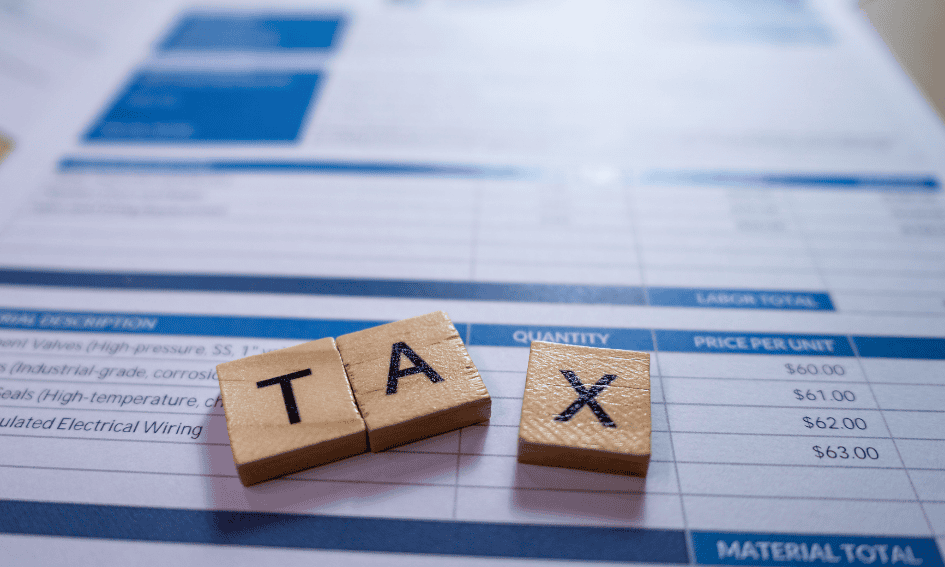A Guide to Tax Obligations for Non-Resident Property Owners in Vietnam
01 Oct, 2025

A guide to tax obligations for non-resident property owners in Vietnam is essential reading for individuals and organizations that own real estate but do not reside in the country. As Ho Chi Minh City’s property market increasingly attracts international investors and overseas Vietnamese, understanding tax obligations helps property owners comply with local laws while optimizing financial returns. This article provides an overview of applicable taxes, filing procedures, and key considerations to ensure transparent and lawful property investment.
Introduction
Vietnam’s real estate market, particularly in Ho Chi Minh City, has become an attractive destination for foreign investors and overseas Vietnamese. Alongside profit opportunities, owning property in Vietnam also comes with specific legal obligations. One of the most important is tax obligations for non-resident property owners.
Unlike domestic residents, non-resident landlords and investors must comply with distinct rules for tax declaration and payment. Understanding these regulations not only helps avoid legal risks but also enables property owners to maximize returns from their investments and rental activities.

Defining Non-Resident Property Owners
Under Vietnamese tax law, the term “non-resident” generally applies to individuals who do not meet the residency conditions in Vietnam. Specifically, a person is considered a resident if they stay in Vietnam for 183 days or more within 12 consecutive months, or have a registered permanent residence in the country. Anyone not meeting these requirements is classified as a non-resident.
For real estate, non-resident property owners may include foreigners who purchase property under the Law on Housing 2014, as well as overseas Vietnamese who legally own property in Vietnam but live abroad. This classification directly affects how taxes are assessed, since non-resident income is often subject to fixed tax rates rather than progressive tax brackets applied to residents.
Types of Taxes Applicable to Non-Resident Owners
Non-resident property owners in Vietnam are subject to several key taxes. These obligations apply not only when leasing property but also during transfer or ownership.
Property Transfer Tax (Capital Gains Tax)
- When selling or transferring real estate, non-residents must pay Personal Income Tax (PIT) at a flat rate of 2% of the transfer value.
- This fixed rate replaces the progressive tax brackets applicable to resident taxpayers.
- Legal basis: Law on Personal Income Tax 2007 (amended), Article 17.
Rental Income Tax
- For leasing activities, non-resident landlords are required to pay 5% VAT and 5% PIT on total rental income (same as residents).
- Rental income below 100 million VND per year is exempt from both VAT and PIT.
- Legal basis: Circular 40/2021/TT-BTC.
Other Relevant Taxes
- Registration Fee (Levy): 0.5% of the property value when registering ownership or transfer.
- Non-Agricultural Land Use Tax: applicable to landowners under the 2010 Law on Non-Agricultural Land Use Tax.
- Management Fees: collected by building management boards, not a government tax but a related expense.
Tax Filing Procedures for Non-Residents
To remain compliant, non-resident property owners in Vietnam must declare and pay taxes through proper channels. The basic procedures include:
Representation or Authorization
- Since they do not live in Vietnam, most non-resident owners authorize a local representative (often the tenant or a management company) to handle tax filing and payment.
- A notarized authorization agreement is required by law.
Tax Forms and Documentation
- For property transfer: documents include the sale contract, ownership certificate, and the Personal Income Tax declaration form (Form No. 03/BĐS-TNCN).
- For rental income: required documents include the lease contract, copies of ID, and tax declaration forms under Circular 40/2021/TT-BTC.
Tax Deadlines
- For property transfers: tax must be paid within 10 days from the effective date of the transfer contract.
- For rental income: tax is usually filed and paid quarterly or according to the contract terms.
- Legal basis: Law on Tax Administration 2019 and Circular 40/2021/TT-BTC.
Double Taxation Agreements (DTA)
A common concern for non-resident property owners is the risk of being taxed twice—once in Vietnam and again in their country of residence. To address this, Vietnam has signed Double Taxation Agreements (DTAs) with more than 80 countries.
Significance of DTAs
- DTAs ensure that non-resident individuals and organizations avoid duplicate taxation on the same income.
- They promote transparency and encourage foreign investment in Vietnam’s real estate market
How to Apply DTAs
- Non-resident owners must provide a Certificate of Residence issued by their home country.
- This document should be submitted along with tax filings in Vietnam to claim DTA benefits.
- Legal basis: Law on Tax Administration 2019 and Vietnam’s bilateral tax treaties.
Common Challenges and Practical Tips
Non-resident property owners in Vietnam often face obstacles when fulfilling their tax obligations. These challenges arise from language barriers, complex regulations, and geographical distance.
Common Challenges
- Language barriers: most tax forms and procedures are in Vietnamese.
- Complex processes: multiple documents and strict deadlines are required.
- Geographical distance: difficult to handle filings directly while living abroad.
Practical Tips
- Appoint a professional representative, such as a property management company or an accountant.
- Prepare bilingual documentation to minimize errors and delays.
- Leverage DTA benefits to lawfully reduce the tax burden and avoid double taxation.
Conclusion
Non-resident property owners in Vietnam must fully understand and comply with tax obligations to ensure transparent and lawful investment. Key taxes include property transfer tax, rental income tax, registration fees, and land use tax, along with timely filing procedures. Additionally, leveraging Double Taxation Agreements (DTAs) can significantly reduce the financial burden.
As Ho Chi Minh City’s real estate market continues to grow, mastering tax regulations not only helps maximize returns but also mitigates legal risks. For comprehensive support, from legal advice to property management services, contact VnRenthome today.

